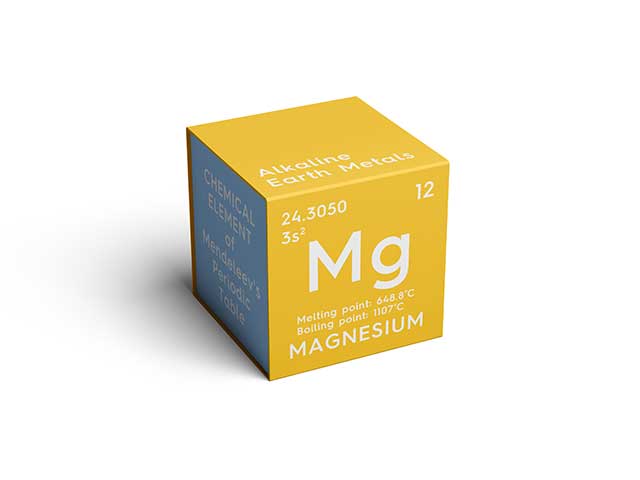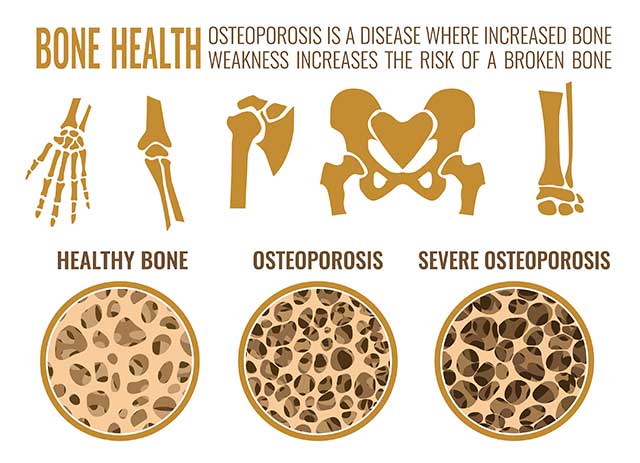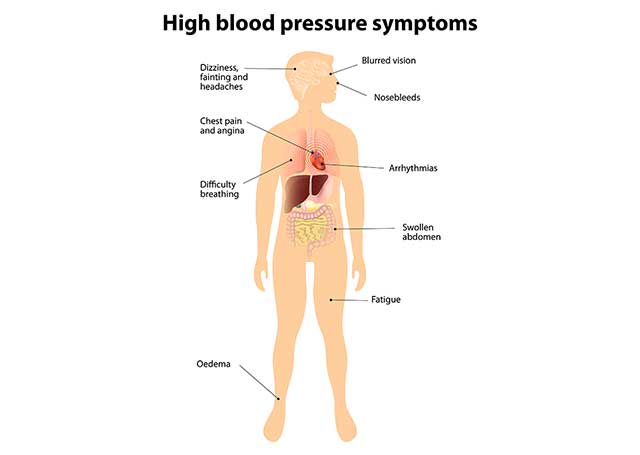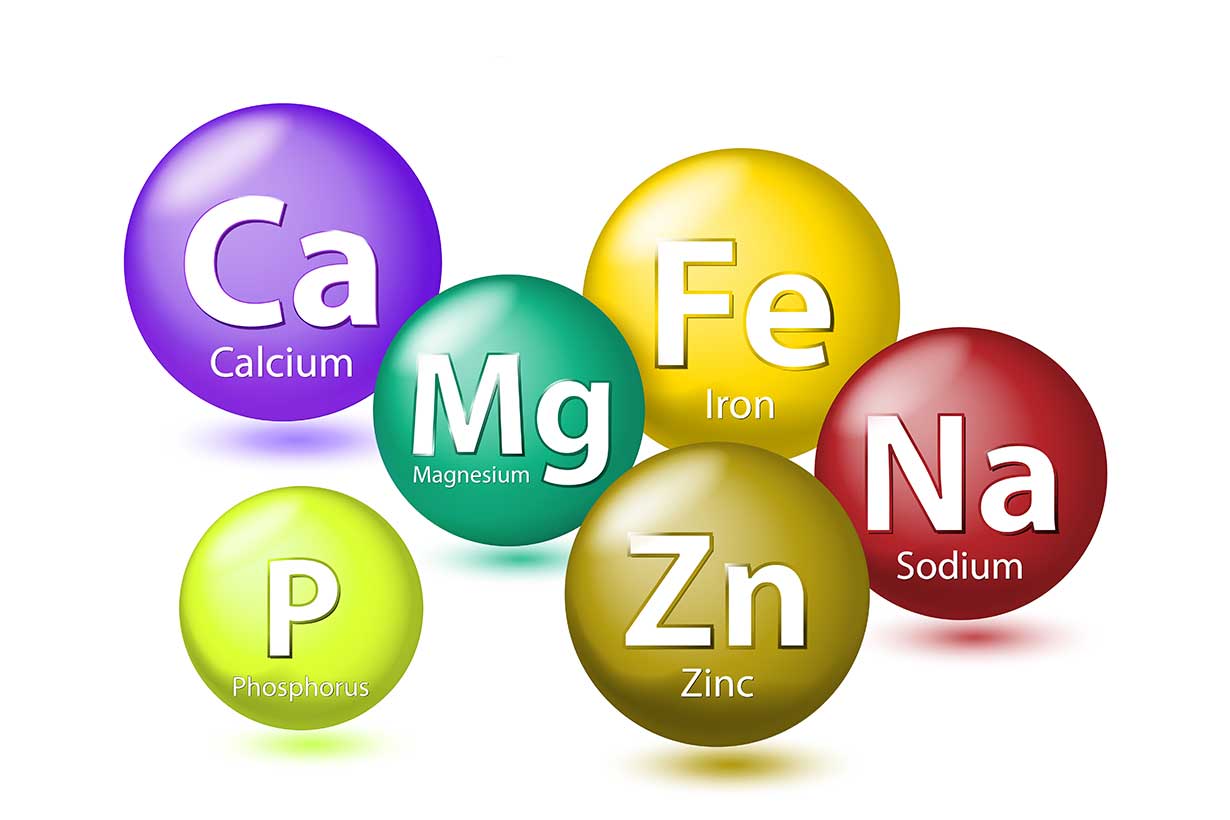Magnesium is an essential mineral with a wide range of health benefits.
However, not all of us have a sufficient intake of the mineral, and magnesium deficiency can cause several health problems.
This article examines some potential symptoms and effects of magnesium deficiency, which is otherwise known as hypomagnesemia.
Additionally, we examine which individuals are most at risk of low magnesium levels.
What Is a Sufficient Magnesium Intake?

First of all, the current reference daily intake (RDI) of magnesium for adults ranges from 310 mg to 420 mg depending on age and gender.
Unfortunately, the 2015 US Dietary Guidelines declared magnesium a “shortfall nutrient” because around 50% of Americans don’t consume an adequate amount of the mineral.
In some age groups, magnesium intake falls “substantially below” recommended guidelines (1).
Regarding these age groups, magnesium deficiency tends to be more of an issue for older adults, which we will look at in more detail later.
Symptoms of Magnesium Deficiency
While there are many potential signs and effects of magnesium deficiency, this article will focus on those with scientific evidence behind them.
Each of these symptoms has moderate to strong associations with inadequate magnesium intake.
1) Irregular Nerve and Muscle Function
Magnesium plays an important role in the nervous system and muscular contraction.
As a result, low levels of the mineral may cause abnormal functioning of nerves and muscles.
For example, muscle cramps, spasms, numbness, and tingling are all common symptoms of hypomagnesemia. These symptoms frequently occur in the legs and soles of the feet (2, 3).
Additionally, case reports clearly show that patients with magnesium deficiency present symptoms such as muscle cramps and twitching (4).
2) Osteoporosis

Magnesium is one of the key minerals for bone formation and structure.
As a result, a deficiency in the mineral can potentially lead to low bone mass or in the worst-case scenario, osteoporosis (chronic bone loss).
Studies show that a lack of magnesium impacts upon osteoporosis risk in several ways;
- Magnesium depletion causes the suppression of parathyroid hormone, which controls the amount of bone-supportive calcium we absorb from our diet (5).
- Magnesium deficiency can cause chronic low-grade inflammation, which contributes to bone loss. Additionally, when the body has only a low supply of magnesium, body stores (taken from bone) are used (6).
3) Poor Sleep
Alongside potassium, vitamin D, and zinc, magnesium is one of the most important nutrients for optimal sleep.
Numerous studies show how magnesium intake can affect our nightly sleep;
- In a clinical trial on magnesium supplementation in older adults, a daily dose of magnesium significantly improved insomnia symptoms over a 4-6 week period (7).
- A randomized controlled trial showed that magnesium supplementation (alongside melatonin and zinc) improves sleep time and quality of sleep. Participants also felt more alert in the mornings (8).
- In the Jiangsu Nutrition Study of 1487 adults, higher dietary magnesium intake was associated with lower daytime sleepiness. This suggests a potential improvement in sleep quality (9).
- A randomized controlled trial of 46 participants aged between 60 and 75 years old analyzed the effect of magnesium supplementation on insomnia. The results showed that higher magnesium intake improved length of sleep, sleep quality, and decreased numerous markers of insomnia (10).
4) Hypertension

Hypertension (high blood pressure) is a common medical problem that is multi-factorial in causation.
However, research suggests that insufficient magnesium intake can increase the risk of hypertension.
First of all, a meta-analysis of 10 studies featuring more than 20,119 cases of hypertension found a dose-response relationship between magnesium intake and blood pressure. For every 100 mg increase in magnesium intake, the risk of hypertension dropped by 5% (11).
Supporting this association, a meta-analysis of controlled randomized trials demonstrated that increasing magnesium intake had a causal effect on lowering blood pressure (12).
5) Anxiety
Research shows that magnesium deficiency may play a negative influence in numerous neurological disorders.
Among these, a large number of studies demonstrate that a lack of magnesium may be a cause of anxiety.
Firstly, animal studies show that mice with lower levels of magnesium show heightened anxiety-like behaviors (13, 14).
There are also studies that show increasing magnesium intake in humans helps to improve symptoms of anxiety.
For example, a systematic review of 18 studies found that magnesium has a beneficial effect on participants with subjective anxiety (15).
However, the quality of existing research on magnesium and anxiety in human participants is not extensive, and more extensive research is necessary
6) Muscular Weakness

Magnesium deficiency can lead to muscular weakness, and this weakness can be in the arms, legs, jaw, neck, or other parts of the body (16, 17).
In extreme cases, this may even be life-threatening in very young infants.
On this note, a review of 19 case-control studies found a link between magnesium deficiency and sudden infant death syndrome (SIDS).
The hypothesis was that a magnesium-deficient infant may lack the upper body strength to turn their head in a life-threatening face-down position (18).
7) Depression
Studies show some evidence that magnesium insufficiency is a contributory factor in depression (19).
First of all, there are direct links between low levels of magnesium and the development of depression (20).
This is further supported by the fact that increasing magnesium intake appears to reduce the symptoms of depression.
In a randomized controlled trial, 126 adults suffering from depression took 248 mg of magnesium per day for 12 weeks. After the 12-week study period, there was a “significant decrease” in depressive symptoms (21).
Further to this, there are also indirect links because magnesium depletion can cause inflammation, which also shares links to depression (22, 23).
However, a systematic review and meta-analysis of the link between magnesium and depression showed inconsistent results (24).
8) Headaches and Migraines
Headaches and migraines are one of the most common effects of magnesium deficiency.
In a case-control study, 140 migraine patients had their blood magnesium levels tested and then compared to 140 healthy symptomless people.
Notably, serum magnesium levels were “significantly lower” in the group of migraine patients (25).
Furthermore, numerous studies show that increasing magnesium levels reduces both the frequency and intensity of migraines (26, 27).
A systematic review of clinical trials also showed that magnesium dicitrate supplementation “seems a safe and cost-effective strategy” as a migraine treatment (28).
It is worth noting that low magnesium levels don’t necessitate supplementation, and a focus on magnesium-rich foods can be just as effective.
Individuals At Risk of Magnesium Deficiency

First of all, anyone can suffer from a nutrient deficiency to any vitamin or mineral if their diet is not right.
However, there are certain groups of people who are more at risk for developing low magnesium levels.
People Who Abuse Alcohol
A range of evidence shows that chronic alcohol consumption reduces plasma levels of magnesium and increases urinary excretion of the mineral (29).
As a result, heavy drinkers often exhibit poor magnesium status.
The Elderly
Sadly, the aging process can increase the risk of magnesium insufficiency.
There are a range of potential reasons for this, including inadequate food/nutrient intake, sub-optimal absorption, and poor gastrointestinal function (30, 31).
People With Celiac Disease
It is a common occurrence for patients with celiac disease to have poor magnesium status (32).
Typical advice recommends that celiac patients eat a magnesium-enriched diet, or at least focus on getting a higher dietary intake of the mineral (33).
Crohn’s Disease
Crohn’s disease commonly leads to hypomagnesemia due to poor intestinal absorption of magnesium (34).
How To Ensure Sufficient Magnesium Intake
Firstly, there are lots of foods that supply significant amounts of magnesium.
Such foods include cocoa, dark chocolate, pumpkin seeds, brazil nuts, and conch (sea snail).
For a full review of the top 20 magnesium-rich foods, see this article.
In addition, a magnesium supplement could be a good idea for anyone who feels they aren’t getting enough of the mineral from their diet.
You can find a guide to the best magnesium supplements in this guide here.
In this case, magnesium citrate appears to be one of the most evidence-based options (35, 36).
Final Thoughts
Magnesium is a critical mineral for good health, and as this article shows, magnesium deficiency can cause numerous problems.
That said, there are all kinds of magnesium-rich foods and supplement options available, so getting sufficient levels of the mineral doesn’t have to be difficult.









Which magnesium is most effective
Personally, I think it’s best to try to get magnesium from our regular diet/food. But regarding supplements, studies consistently show that magnesium citrate is well absorbed.